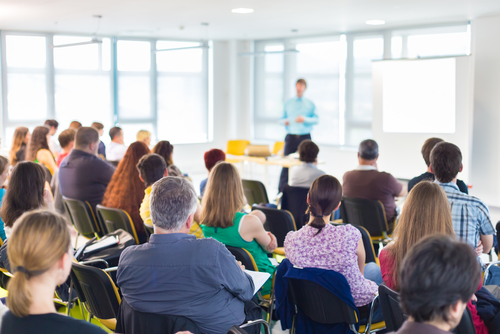We have some notes from the field for you this week - our CEO, Dr. Gavin W. Manes, recently attended the Georgetown Advanced eDiscovery Institute and shared his experience.
First, it has been a few years since I've been to a conference, so it was quite a treat to be surrounded by a group of peers. What's more, it was an incredibly knowledgeable group, and the discussions were at a high level as we dug deep into some of the most pressing issues in eDiscovery today.
It was a relief to learn how many people are dealing with some of the same issues we are - nice to know we're all in the same boat, even after a few years of handling a pandemic alongside our regular work. I was thinking about and examining Avansic's processes the entire time I was there, whether during sessions or in conversation with participants, and it was good to see our approach to standards lines up with everyone else's. Some of the more common topics included using AI technology to reduce or manage review and the importance of asking questions about the opposing party's processes (for instance, how de-duplication is performed and if email threading is utilized). One of the best discussions involved the use of de-dupe to remove exact dupes to avoid reviewing the same content twice. However, this can become problematic when de-dupe doesn't track custodians, particularly if there are rolling data additions to the case. It was refreshing to have a collective agreement that this procedure can be an issue, and I very much appreciated the discussion around it. While at the conference, I was also working on a draft opinion for a client where I had to state that "producing non-searchable single page TIFFs is inadequate." This is a process I thought was already determined by the industry as inadequate, but it was reassuring to hear my colleagues say they were surprised such a thing needed to be put into writing because I thought it was surprising too.
Another highlight of the conference was being in a tiny, jam-packed room, watching a panel discuss litigation related to data breaches. It was very informative hearing lawyers speak technically about modes and methods of data breach and their outcomes, and they displayed a deep understanding of the related issues. In particular, the plaintiff's representative on the panel said some things regarding the calculation of damages based on a perception of the cost of expenses. For example, if you knew that a hotel was going to lose your information and appear on the dark web, you might want to pay 25% less for that room than you actually paid. I felt these models were much more sophisticated than I've seen and may represent some sea changes in the way we think about damages and data breaches.
I was incredibly fortunate to speak on the "Identifying and Challenging Fabricated Evidence" panel. There were some excellent questions and comments from the audience. Overall, I was reassured that my peers are also amazed by how far fabricated evidence makes it in the legal process. After the panel, armchair discussions sprung up about the kinds of false evidence we are seeing and how it is growing more sophisticated every day. Unfortunately, we are also seeing some less sophisticated fake evidence (such as forwarding an email and modifying the header) going the distance without being challenged, despite existing technology that allows for the modification of email threads.
To conclude this recap of Georgetown EDI highlights, I want to thank my fellow panelists for bringing their insight and expertise. Denise Backhouse presented a very technical case in an understandable way and discussed the ethics of what to do when you encounter fake evidence, whether it's from your client or the opposing party. Rebekah Bailey brought candor to the discussion about how and why this type of evidence makes it so far in many cases and how counsel can change their practice to detect this kind of activity earlier in the process. David Gaston was incredibly organized in bringing the whole panel together, rehearsing well, and having such deep knowledge of technology and eDiscovery. And I look forward to receiving my AI-generated painting of the perfect ski mountain for lawyers and am happy to share that at the next conference where we are together.


